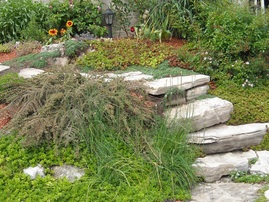 What is he trying to say?
What is he trying to say?
Words, like books, count among my best friends.
When you think of it, words are truly amazing. And they are everywhere, all the time. Books, magazines, internet pages are filled with them, as are our minds whether we are talking, thinking or dreaming. Words allow us to make sense of our world.
I often wonder if my little Sheltie is making conversation with me with his array of barks, yips, growls, and whines. It would appear that he has quite the vocabulary – I just wish I could understand!
Like music, words make a wonderful combination of sound, which the brain is able to interpret. Sounds which are unique to us, our community, our nationality. I will never forget visiting Scotland as a young woman and asking for help to get back to the hotel. While I understood their gestures and knew they were speaking English, I really couldn’t decipher what they were trying to tell me.
And, in a group of words, they can convey an entirely different meaning than of each one individually. Do you really “stop on a dime”? What did you “get off your chest”? What is your “John Hancock”? No wonder English can be so confusing!
Words move and change, like water rippling over pebbles or light playing hide and seek. And they take on different meanings to different groups of people. For instance, only Canadians would pay for something with a looney; the British find bonnets on their cars, Americans on their heads; and who wouldn’t want to attend a Barbie down under?
Meanings change over time as well. To Shakespeare, a table was a notebook; for Chaucer, tables was the game of backgammon. I love looking up words in the dictionary to find their “root”, or their original meaning and compare that to today’s usage.
When you think of it, words are truly amazing. And they are everywhere, all the time. Books, magazines, internet pages are filled with them, as are our minds whether we are talking, thinking or dreaming. Words allow us to make sense of our world.
I often wonder if my little Sheltie is making conversation with me with his array of barks, yips, growls, and whines. It would appear that he has quite the vocabulary – I just wish I could understand!
Like music, words make a wonderful combination of sound, which the brain is able to interpret. Sounds which are unique to us, our community, our nationality. I will never forget visiting Scotland as a young woman and asking for help to get back to the hotel. While I understood their gestures and knew they were speaking English, I really couldn’t decipher what they were trying to tell me.
And, in a group of words, they can convey an entirely different meaning than of each one individually. Do you really “stop on a dime”? What did you “get off your chest”? What is your “John Hancock”? No wonder English can be so confusing!
Words move and change, like water rippling over pebbles or light playing hide and seek. And they take on different meanings to different groups of people. For instance, only Canadians would pay for something with a looney; the British find bonnets on their cars, Americans on their heads; and who wouldn’t want to attend a Barbie down under?
Meanings change over time as well. To Shakespeare, a table was a notebook; for Chaucer, tables was the game of backgammon. I love looking up words in the dictionary to find their “root”, or their original meaning and compare that to today’s usage.
Heal
 May your journey be surrounded by beauty!
May your journey be surrounded by beauty!
Let’s look, for example, at the word “heal”. The dictionary tells us that it means to become sound or healthy again. We usually think of it as meaning to “get better”. We kiss it better; we hope you’re feeling better; we’re better than we were.
Heal comes from the Old English word hælen which is related to the word hal (as in hale and hearty), meaning whole. Looking at the word in this context, it means so much more than making sound, or getting better; it means becoming whole again.
Our bodies constantly strive to be in balance. When we are not, we experience some sort of discomfort or illness. But it’s not only our bodies that create the whole person; it is also our mental, emotional and spiritual states.
So if we are not in balance emotionally, that imbalance is also experienced in our physical being. This is why it can be so difficult for our conventional medicine to treat people. As medicine become more and more specialised, it concentrates on breaking down illness into compartments. Each doctor deals with his own speciality, often with conflicting diagnosis and treatment plans. It’s like the idioms of medicine!
When it comes to looking at the whole person, to take into account all aspects of our being, we really need to take charge of our own health. We need to discover why we are out of balance, and treat that, instead of treating the symptoms.
Often we need to work with many different specialists, in the realms of conventional, natural, and spiritual healing in order to re-gain equilibrium. Each has their own unique approach, and each has its own value. I often find that people come into my life for a period of time, short or long-term, and each one has another piece of my health puzzle.
So let us look at healing as a process, a journey to becoming whole. Instead of being better, we can be the best. Don’t hesitate to investigate all possible paths and take the one that feels right to you. It may be the one less travelled, the one questioned by the experts, but as long as the progress on your journey leads towards wholeness, then it is the right one for you.
I hope to see you on the way.
Heal comes from the Old English word hælen which is related to the word hal (as in hale and hearty), meaning whole. Looking at the word in this context, it means so much more than making sound, or getting better; it means becoming whole again.
Our bodies constantly strive to be in balance. When we are not, we experience some sort of discomfort or illness. But it’s not only our bodies that create the whole person; it is also our mental, emotional and spiritual states.
So if we are not in balance emotionally, that imbalance is also experienced in our physical being. This is why it can be so difficult for our conventional medicine to treat people. As medicine become more and more specialised, it concentrates on breaking down illness into compartments. Each doctor deals with his own speciality, often with conflicting diagnosis and treatment plans. It’s like the idioms of medicine!
When it comes to looking at the whole person, to take into account all aspects of our being, we really need to take charge of our own health. We need to discover why we are out of balance, and treat that, instead of treating the symptoms.
Often we need to work with many different specialists, in the realms of conventional, natural, and spiritual healing in order to re-gain equilibrium. Each has their own unique approach, and each has its own value. I often find that people come into my life for a period of time, short or long-term, and each one has another piece of my health puzzle.
So let us look at healing as a process, a journey to becoming whole. Instead of being better, we can be the best. Don’t hesitate to investigate all possible paths and take the one that feels right to you. It may be the one less travelled, the one questioned by the experts, but as long as the progress on your journey leads towards wholeness, then it is the right one for you.
I hope to see you on the way.
Our limitations and success will be based, most often, on our own expectations for ourselves. What the mind dwells upon, the body acts upon. Denis Waitley
